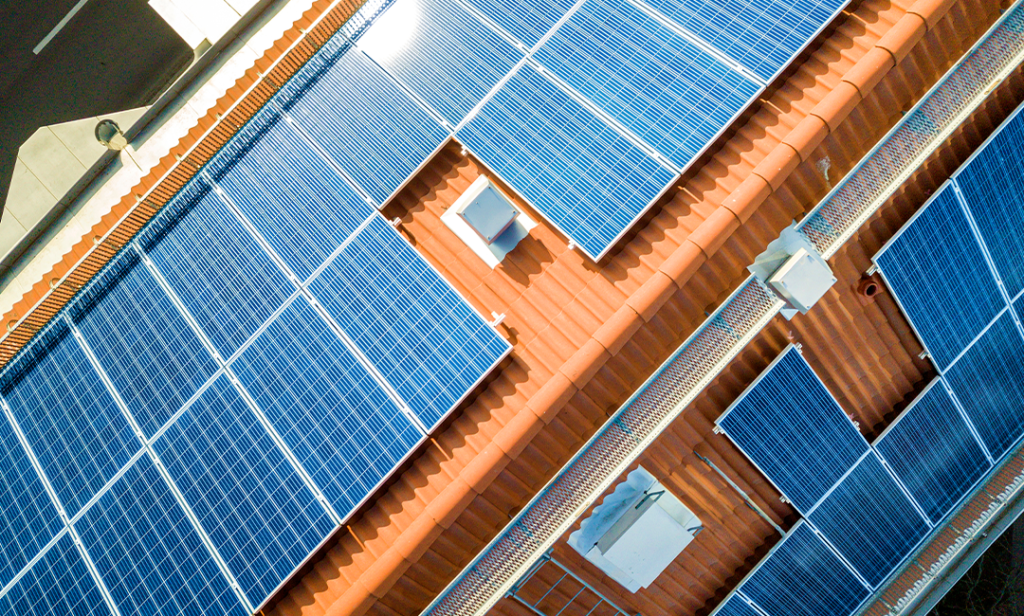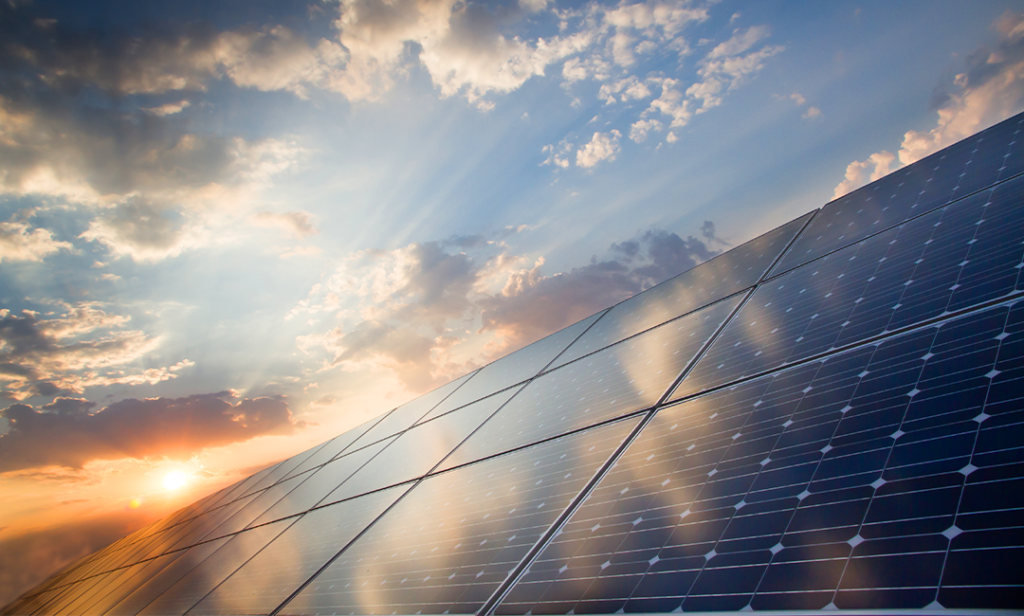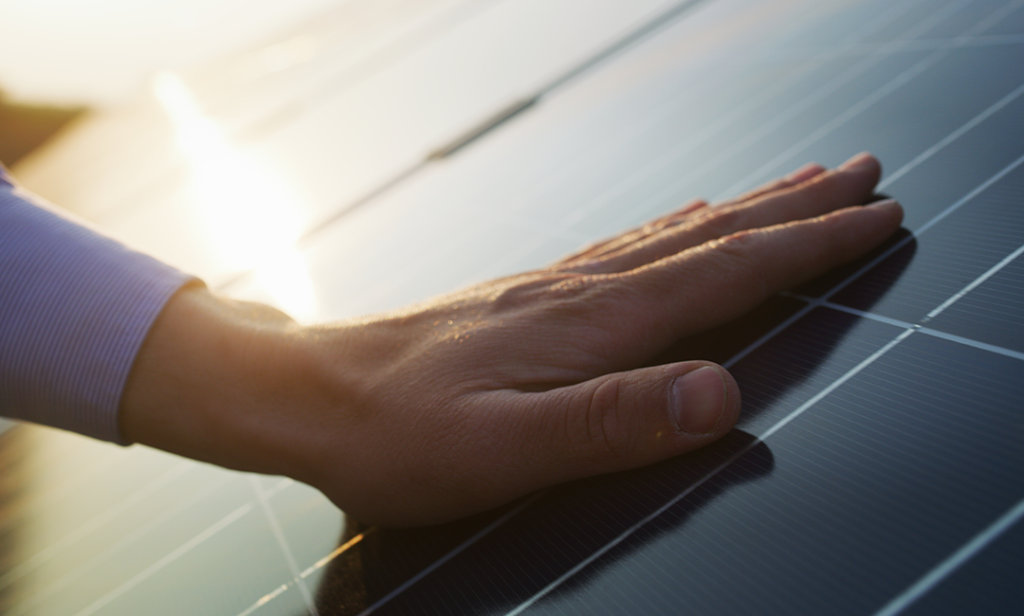Just about anyone you ask will tell you that installing solar panels on your home can save you money. But exactly how much a solar panel installation actually costs is a different story. That ties into the next question, which is if the installation cost of solar panels is worth it in the long term.
While the prospect of saving large sums of money is really appealing, and you might already be convinced that solar is the way to go, it’s always smart to have an idea of the actual cost breakdown. You’ll want to know the price for installation, monthly bills, potential savings/tax breaks, and much more.
So How Much Does An Average Residential Solar System Cost?
It’s common knowledge that having solar panels on your home will cut down on your utility bills. If your electricity bill is really high, over their lifespan, solar panels can potentially save you a huge amount of money. This is especially true if you live in a region of the country where solar panels and solar panel installation is cheap, and also if you’re able to qualify for tax breaks.
Before diving into the meat of “how much solar panels cost and are they really worth it”, here’s a quick price breakdown. The Center for Sustainable Energy researched average cost for solar panels. Solar panels, on average, run about $3-$5 per watt. Your average residential solar system is 5-kW, which means it will cost you about $15,000-$25,000 to install solar panels on your home.
How Much Do Solar Panels Cost
We mentioned already the average cost of solar panels for an average residence and average residential solar system. However, we know that specifics are extremely important when it comes to a decision with as much financial weight as the potential installation of a home solar system.
Solar panels have a huge price range. When looking at this price range, you want to consider two things. Your average solar energy system is 6 kilowatts, so you’ll want to know what the starting cost for that is. Secondly, the next most important factor to consider is how many cents per kilowatt-hour you can expect to pay. This is highly dependent upon where in the country you’re located.

Solar Panel Cost Varies Depending on Where You Live
One question we frequently get asked is, “why would the cost of solar panels vary so much depending on where I live?” When we talk about the cost of solar panels, what we’re really referring to is not only the solar panels themselves, but also to the costs associated with the solar panels’ installation.
The national average cost of solar panels is 10.53 cents per kilowatt-hour. Since that’s the average, you’re going to see numbers much lower than this, as well as much higher.
A lot of this discrepancy in price is the result of the wide range in electricity bills across the country. Your electric bill is going to be larger, for example, if you’re living in an area where you’re constantly running the air conditioning or the heat. Another factor contributing to the big price range in solar panels is the accessibility of where you live.
Solar Panel Cost Per State
If you live in Hawaii, you can expect to pay more for your solar panels and their installation than if you live in Louisiana. In fact, Hawaii has the highest costs for solar panels, whereas Louisiana has the lowest costs.
Cost of Going Solar in Virginia
Since Convert Solar is based in Virginia Beach, Virginia, here are some solar numbers for Virginia residents. The cost of running a solar energy system in Virginia is 9.48 cents per kilowatt-hour. The solar panel starting cost for a 6-kW system is $15,780.

Tax Incentives for Going Solar in Virginia
Like we mentioned above, the tax incentives for going solar are often some of the biggest contributing factors to our customers deciding to install solar panels on their home. The tax breaks will vary per state; some states have higher incentives than others.
However, across the board, people can expect their solar energy system to come with some big benefits. For example, Virginia residents can expect to pay a pretty high solar panel purchase price tag. But they can also expect to see a big tax break, with the average coming in at around $3,472 annually.
Factors That Go Into Determining the Cost of Solar Panels
There isn’t just one factor that determines what you can expect to pay for your solar panels. That said, we consolidated a list of some of the biggest players going into setting the cost of solar panels.
Household Electrical Demand
Simply put, your household electricity demand just means the amount of electricity you’ll use/need to keep your house going each month. There are plenty of things contributing to how much electricity your home will use each month. However, one of the most important factors here is the difference between a home that uses gas to power its appliances, versus a home that uses electricity. The home using gas-powered appliances will use less electricity than its electricity-using counterpart.
Regional Location
We mentioned that depending on where you live in the country, your cost for solar panels will be either higher or lower. In some states it costs more to install solar panels than in other states.
Another big factor in the cost of solar panels and solar energy is how many peak sunlight hours there are in each region. Some states just have more sunlight than others. Imagine the sunlight you’d see in Arizona versus what you’d see in northern Minnesota.

Type of Solar Panels
There are many types of solar panels, and depending upon the type you choose to have installed on your roof, you’ll pay less or more for their installation.
For simplicity’s sake, we’ll classify these panels into two types based on efficiency. There are monocrystalline solar panels and polycrystalline solar panels. Monocrystalline panels are generally more efficient than polycrystalline panels.
However, due to their increased efficiency, monocrystalline panels come with a higher price tag. Something to consider is that if you’re in a home with a smaller amount of rooftop real estate, you’ll need to install solar panels that are higher efficiency.
The Size of the Solar Panels
We mentioned the amount of roof top space you have. Something else regarding size is the size of the actual solar panels. The larger the solar panel, the higher their price, generally speaking.
So although the higher price tag and corresponding higher installation price can be off-putting, it’s often helpful for customers to think about this in terms of long term benefits. The larger your overall solar energy system, the greater electrical output it’ll boast.
This means that with a greater electrical output, you’ll actually be saving huge amounts of money down the road, even after having to shell out a larger up front purchase price.
Amount of Sunlight Received by the Solar Panels
Your savings will potentially be bigger with more hours of daily sunlight your solar panels receive.
Installation Cost of the Solar Panels
In addition to the cost of the solar panels themselves differing widely, the cost of labor for the panels’ installation is going to vary regionally. Both of these factors contribute to the overall cost of your solar panel installation.
You can expect to see different rates and prices for your solar panels based on the solar provider and installer you choose. They choose their own installation and labor rates. When you call a top solar company, they’ll tell you their individual rates and installation costs.
Tax Incentives for Your Area
The federal government has a tax credit geared specifically towards solar energy and solar panels. This is known as the ITC. The ITC varies state to state, and even regionally. Though the tax credit value for 2020 was 26% and it dropped to 22% for 2021, that’s still a significant savings.
Options for Purchasing Your Solar Panels
Solar panels aren’t cheap, that alone can prove to be too intimidating to people. However, solar energy is something that’s important and beneficial, so most solar companies out there want to work with their customers.
To make solar energy more accessible to more people, there are various payment options. This means that customers can fully pay for their solar system upfront, as well as having the option to lease their solar system, or even take out a loan to pay for it.
How Many Solar Panels Am I Going To Need?
There are a number of factors that contribute to answering the question of how many solar panels you’ll need. These will include, but not be limited to, things like: your home’s size, how much sunlight per day your solar panels receive, and how much energy your home needs/uses.
How Much Electricity Do You Want Your Solar Panels To Produce?
We think the question of how much energy your home needs/uses is actually the most important. This determines how many solar panels you’ll need to purchase and install, as well as dictating, to an extent, the type of solar panels you’ll want.
Something to keep in mind here when you’re thinking about how many solar panels you’ll need to buy and install, is how much electricity you’re wanting your solar panels to generate. When many people decide to go solar, they have an end goal of their solar panels generating 100% of the electricity for your home.
This is what will totally do away with your monthly electric bill. Obviously, if your goal for your solar panels is to meet all of your home’s electricity needs, you’ll need to buy more solar panels at the outset. While this does significantly increase your upfront cost, it’ll provide you with the most long term savings.
Kilowatt-Hours Tell You How Many Solar Panels To Buy
Before you go full steam ahead and buy a bunch of solar panels, you’ll want to do some research on how many kilowatt-hours (kWh) the various solar panels produce. Also, you’ll need to figure out what your kWh usage is on your utility bill.
Your home’s kWh usage can be found on your monthly utility bill. It’s listed monthly, so this makes it very simple to figure out your daily usage. Just take the number shown and divide it by 30 (or 31), and that will tell you your daily usage.
Another way to look at this is if you use 50 kWh, then you’d need to buy 50 solar panels.
Other Factors Contributing To Number of Solar Panels Needed
Usually people just think in terms of how many solar panels will be needed to power their homes. However, if you’ve got buildings other than the house that need power, that will increase the number of solar panels you’ll need to purchase.
For example, pools need power, thus needing solar panels. Then you’ve got guest houses, detached offices and garages. If your goal is to be 100% solar powered, then you’ll need solar panels for every single area needing power.
Savings Gained From Installing Solar Panels
Having solar panels installed on your home will definitely save you money. You can save pretty substantial amounts off your monthly electricity bill, but it’s hard to know for sure the amount. The reason for this is that various factors go into letting you know how big your savings will be.
Deciding Factors Determining Your Monthly Savings
Your roof’s size and angle and orientation to the sun are all important factors in determining your savings from having solar panels.
Also, the number of hours your roof is getting direct sunlight is very important. The more direct sunlight your solar panels receive, the more electricity they’ll generate.
Local electricity rates also factor into the amount you can save from having solar panels. Some regions are simply more/less expensive than other regions. In a region with steep electricity rates, it makes sense that having solar panels would potentially be extremely helpful in offsetting costs.
How Cheap/Accessible Are Solar Panels For The General Public?
The Solar Energy Industries Association does research on solar panels and solar energy systems. In recent research, they determined that solar panels are at their cheapest rates ever.
In fact, in the last decade, the cost of buying and installing solar panels has dropped an incredible 70%. This is huge! And it means that solar panels are more accessible than ever to the general public.
So How Much Would I Actually Save With Solar Panels
Like we’ve said, there are a lot of things that go into this. However, a simple and easy way for homeowners to look at this is to figure out the amount of money they’re spending monthly on electricity. They can then take that amount and compare it to the monthly amount they’d be spending if they had solar panels.
Obviously you can’t figure out the exact amount, down to the cent, unless you have the solar panels and are doing a direct comparison. But it’s still a helpful exercise in determining your savings from generating solar energy.
What Will My Monthly Electric Bill Look Like With Solar Panels
We often get asked if having solar panels installed on your home will completely eliminate your home’s electric bill. The answer is potentially yes!
You’ll still get an electrical/utility bill. However, instead of opening it and dreading seeing the amount owed, you’ll see instead a breakdown of your electric/power usage. It will typically look like a side by side comparison of your usage and how it was offset by the net credits you receive each month (for going solar).
Credits For Going Solar
Here’s one of the greatest things about going solar. In addition to being a very environmentally sound alternative power source, solar energy can actually give electricity back to the grid. This happens when your solar energy system is actually giving back more energy than it’s taking.
When this happens, and your home is using less electricity than your solar panels are generating, this surplus electricity is sent back to the electric grid. You’ll see the benefits of this on your next monthly bill. The surplus shows up as a credit for the next month, or money back.
Getting the Best Deal On My Solar Panels
Research is probably the most important piece when you’re considering going solar. Here at Convert Solar, we know what a big investment it is to go solar, so we want to provide you with the most comprehensive information we can.
Something incredibly important to remember here is that just because some solar panels might look like a good deal, the cheapest rates don’t necessarily mean you’re getting a good value. So in order to get the best deal possible when buying solar panels, we thought the following information would be useful.
Equipment Is Key
The solar energy system you choose is going to dictate the energy produced. The bottom line here is that it comes down to the equipment as the deciding factor in how much energy your solar panels produce.
When you’re looking around to find the best company to do the solar energy system installation, you’ll want to really weigh the cost of the whole system, not only the equipment cost, but also your financing options and the available warranties.
Remember that the most expensive equipment doesn’t necessarily equate to higher savings in the long run. Also, we’ve noticed that the small scale solar panel installers often have a bigger variety of solar equipment than the larger, national installers do.
Compare Rates and Quotes
The key here is to do your research. You’ll want to make sure that you’ve thoroughly sorted through all the information out there on solar panels and solar energy systems before you commit to your final decision. Don’t rush into it!
The U.S. Department of Energy’s National Renewable Energy Laboratory urges people to compare as many quotes as they can so that they can avoid inflated prices and get the best rates possible.
As you start your research, you’ll see that most solar companies provide solar calculator quote tools on their sites. The quote tools are really helpful because they’re designed not only to help you find the best rates, but also to connect customers to installers in their own area.
Convert Solar is Virginia Beach’s leading solar installer. We strive for customer satisfaction and to give you the best options on the market. We believe solar is the way of the future and that although it’s a big investment, it’ll pay off in spades in the long term. Contact us today to get your solar quotes and to set up a consult and installation!
